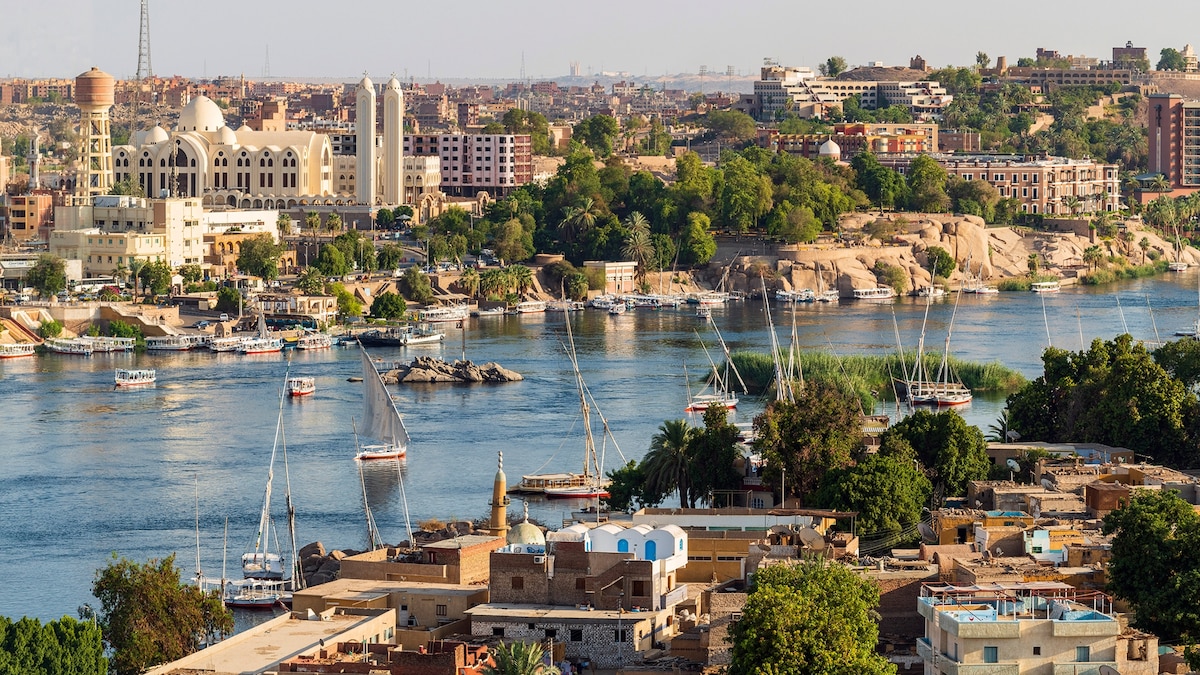A practical guide to travel in Egypt
3 min read
This article was produced by National Geographic Traveller (UK).
Whether you want to sail down the Nile on a felucca, explore ancient temples, browse the museums of Cairo or go trekking in Sinai, there are a few things to bear in mind when planning your trip to Egypt. Here’s what to be aware of when it comes to visas, tipping, guides and more.
Do I need a visa?
Almost all travellers, including visitors from the UK and the EU, need a visa to travel to Egypt. While it’s possible to get a visa on arrival, it saves time at the airport if you apply online in advance. A single-entry tourist visa costs US$25 (£20). If you plan to stay in the resort towns in Sinai for fewer than 15 days, you do not need a visa. Instead, you receive a ‘permission stamp’ in your passport when you land at Sharm el-Sheikh International Airport. While this option is a money saver, the list of places you’re permitted to visit is quite limited — even Ras Mohamed National Park at the southern tip of Sinai is off limits without the full visa.
What should I pack?
Egypt is a majority Muslim country, so it’s respectful for travellers to dress modestly. For all genders, this means covering everything between your shoulders and knees. You will likely be asked to cover up more if you visit a mosque or church.
The tap water is not safe to drink here so bring a water bottle with a filter, such as those from Lifestraw.
Wi-fi ranges from infuriatingly slow to nonexistent across the country, even at five-star hotels. Get mobile data through your service provider at home or buy an Egyptian SIM card when you land at the airport.
Can I pay by card in Egypt?
Cash reigns supreme but you can use a card at some higher-end hotels and restaurants. Take some Egyptian pounds out of a cash machine when you arrive, but be mindful of the fluctuating exchange rate and don’t take more out than you need. For bigger expenses, consider bringing US dollars, the most — and sometimes only — accepted foreign currency.
Tipping, called baksheesh, infiltrates almost every interaction you’ll have. It’s customary to tip nearly everyone you come in contact with, even for services you don’t want or require. Keep small change on hand for toilet attendants, porters, mosque caretakers and guards at temples and tombs.
Should I join a tour or travel independently?
Egypt has been a package-tour destination since the days of Thomas Cook, who first led a group to Egypt in 1869. The country is well set up for tour groups, and many first-time visitors find this option easiest, with guides and transport logistics arranged for you. Egypt’s historic sites have little signage, making a tour guide a necessity for deeper understanding.
Nile cruises generally run between Luxor and Aswan in both directions, but a few make the long journey from Cairo. Trains, planes and buses connect cities along the Nile, and buses or internal flights can take you to the Red Sea coast.
Responsible Travel’s 12-day Nile & Red Sea tours take in historic sites on a river cruise as well as the Giza Pyramids and time on the Red Sea. Prices start at £2,249 per person, including guides, domestic travel, accommodation and most meals, but excluding international flights.
Getting there & around:
Egypt’s main airport is Cairo International, with British Airways and Egyptair offering direct flights from Heathrow, and Egyptair from Manchester. From Luton, EasyJet and Wizz Air fly to Sphinx International Airport in the greater Cairo area. The Red Sea resort town of Sharm el-Sheikh is well served from the UK, including flights with charter airlines.
When to go:
The best time for key Nile sites is between November and March, when daytime highs average 24C in Aswan. For the Red Sea, late spring and early autumn are ideal (32C). In winter, the sea can get chilly. Summer is a scorcher, with some areas reaching 45C or more.
To subscribe to National Geographic Traveller (UK) magazine click here. (Available in select countries only).



